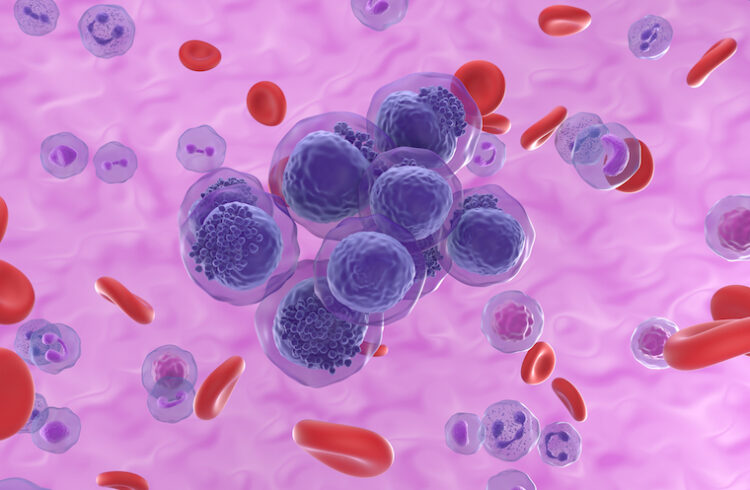
A single dose of a new influenza drug can significantly shorten the duration of the illness in teens and adults, according to a study published in the prestigious New England Journal of Medicine.
The article reports the results of two multicenter, double-blind, randomized clinical trials. Both found that the drug, baloxavir marboxil, shortened the duration of flu symptoms by about one day and more quickly cleared virus compared with placebo in otherwise healthy teens and adults. The larger, phase 3 trial also found that baloxavir’s effect on symptoms was similar to that of a five-day course of oseltamivir (Tamiflu) but that baloxavir had significantly greater antiviral potency. The studies identified no important side effects.
“Baloxavir shows remarkable antiviral potency in uncomplicated influenza, and if approved by the Food and Drug Administration, it would be an important addition to our treatment options for influenza,” said researcher Frederick G. Hayden, MD, of the University of Virginia School of Medicine. “Of note, because baloxavir has a novel antiviral action in inhibiting the endonuclease of the virus, the drug is inhibitory for influenza A and B viruses, including those that may be resistant to currently available drugs.”
Flu Study Findings
The first trial was conducted in Japan in 2016 and evaluated the drug’s safety and effectiveness in 389 adults, ages 20 to 64. Study participants received either the drug or a placebo. Median flu symptom duration among those who received the drug was 23.4 to 28.2 hours shorter than among participants who received the placebo. (Baloxavir, developed by drug company Shionogi, was approved for use in Japan in children and adults in February 2018.)
The second study was conducted in the United States and Japan in the 2016-17 influenza season. It compared baloxavir with both a placebo and an approved drug, oseltamivir, in 1,064 otherwise healthy study participants ages 12 to 64, with proven influenza. The median time to resolution of flu symptoms was 26.5 hours shorter among those who received baloxavir than the 80.2 hours reported among those who were given placebos. Baloxavir and oseltamivir produced similar reductions in symptom duration, but baloxavir required only a single dose compared with the standard five-day oseltamivir regimen.
“Single-dose baloxavir was without evident safety concerns, was superior to placebo in alleviating influenza symptoms and was superior to both oseltamivir and placebo in reducing the viral load one day after initiation of the trial regimen,” the researchers note in their new paper.
In both trials, the rate of adverse events reported by study participants was similar regardless of whether participants had been given a placebo or baloxavir.
Next Steps
To become available in the United States, baloxavir would need approval from the U.S. Food and Drug Administration (FDA). The drug was accepted for priority review by the FDA in June, so that a decision is expected by Dec. 24 at the latest.
The drug was tested for its safety and effectiveness among flu sufferers with a higher risk of complications during the past influenza season, but the results of that testing have not yet been formally presented. (For more details on that trial, visit https://clinicaltrials.gov/ct2/show/NCT02949011) Studies of its effectiveness in hospitalized influenza patients, likely in combination with other influenza antivirals, and in preventing transmission of influenza virus are planned.
About the Authors
The authors consisted of Hayden, Norio Sugaya, Nobuo Hirotsu, Nelson Lee, Menno D. de Jong, Aeron C. Hurt, Tadashi Ishida, Hisakuni Sekino, Kota Yamada, Simon Portsmouth, Keiko Kawaguchi, Takao Shishido, Masatsugu Arai, Kenji Tsuchiya, Takeki Uehara and Akira Watanabe.
The work was supported by Shionogi.
Hayden received consulting fees, paid to the Robert Ford Haitian Orphanage and School Foundation, from Shionogi, Seqirus and PrEP Biopharm. He received fees for serving on data and safety monitoring boards, paid to UVA, from GlaxoSmithKline, Celltrion, and Vaccitech. He received travel support from Shionogi and served as an unpaid consultant to Cocrystal Pharma, Farmak, Fujifilm/Toyama Chemical/MediVector, GlaxoSmithKline, Janssen, MedImmune, Regeneron, resTORbio, Roche/Genentech, Vir Biotechnology. and Visterra. Other members of the research team disclosed financial interests as well. A full list of disclosures is available upon request through the New England Journal of Medicine.



